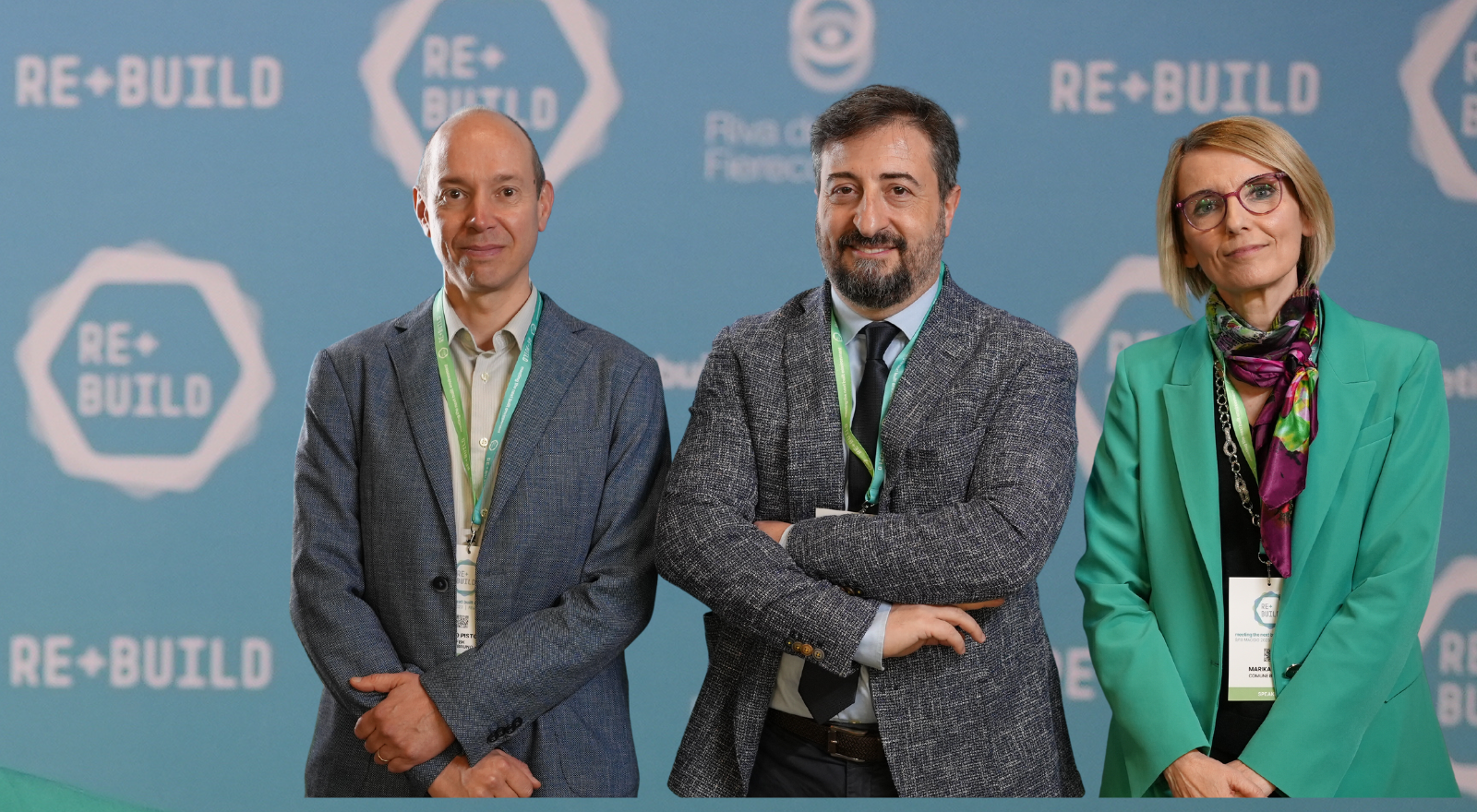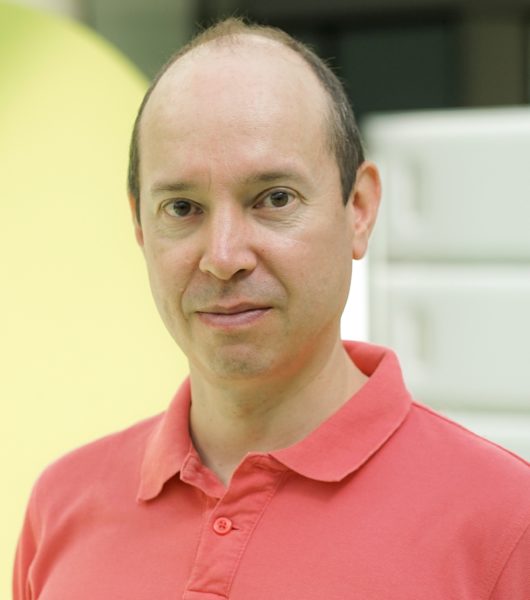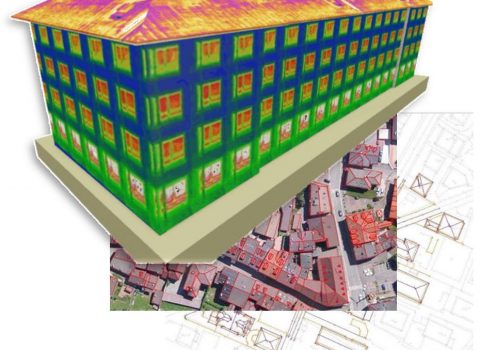
The digital twin and the city-as-a-platform
REbuild Italia 2023 aw the presentation of the digital twin model for Bologna: an infrastructure that does not merely reproduce the urban fabric but supports its relationships, co-evolves with the city dynamically and is able to predict and anticipate behaviors and transformations occurring in the real world, supporting decision-makers' analysis thanks to a representation that is both concise and comprehensive, taking into account the complexity and mutual influences among various urban systems.
Bologna is one of 100 NetZeroCities, smart cities with zero climate impact by 2030. Globally, urban areas currently consume more than 65 percent of the world’s energy resources, producing more than 70 percent of CO2 emissions. Carbon neutrality is a goal the European Union has set to achieve by 2050. These 100 selected cities will serve as trailblazers by trying to reach it early and helping all others.
To systemically address this and many other challenges of change, the capital of Emilia is developing the Urban Digital Twin in collaboration with the University of Bologna, CINECA, Urban Innovation Foundation, and Fondazione Bruno Kessler’s Digital Society Center, directed by Marco Pistore. Thanks to this innovative tool, it is possible to create a digital representation of the city. It is a virtual laboratory in which it will be possible, on an urban scale, to simulate the inclusion of new urban projects by evaluating their impact and sustainability, also comparing possible design alternatives. Moreover, with the Digital Twin these processes will be able to take place in a transparent and democratic way promoting an inclusive approach of citizens and all stakeholders.
Digitization is thus not a one-way trip. The virtuous circle between the real world and the model, indeed digital twin of an entire city, is made up of iterations between what happens, the lives of those who animate the built-up area, and our ability to make sense of the data that are being produced and aggregated at every moment.
To describe the Digital Twin model, Marco Pistore (FBK) spoke as part of REbuild Italia 2023 on May 10 in Riva del Garda, alongside representatives of the Bologna municipal administration Raffaele Laudani (town planning councillor) and Marika Milani (Head of the Department of Town Planning Housing Environment and Heritage), moderated by Andrea Dari from Ingenio. Below are the main elements on which the discussion focused.
- What is the Digital Twin?
A virtual tool that works symbiotically with the city to analyze, correlate and visualize data to facilitate understanding and exploration of city phenomena and systems, predict urban evolutions in advance through the construction of hypothetical scenarios and the simulation of their evolution over time, monitor the evolution and effects of external events and government actions, and optimize the effectiveness of services and the impact of policies through continuous revision based on data on how they work. It is a tool to support decisions and their translation into actions aimed at urban change and to engage citizens in processes of design and social mutation through behavior change that starts from the digital platform and moves into the real world.
- What is Bologna’s approach?
Bologna’s experience enters into dialogue with Barcelona’s European precedent, sharing with the Catalan capital significant design resources through their respective universities and from CINECA and BSC, which manage the high-performance computing systems in the two cities. The 7 million allocated to lay the groundwork for this program, which is in its early stages, will be used to structure and test the model over the next 3 years. What distinguishes Bologna’s approach from other urban digital twin initiatives is the value dimension: the project is grounded in the importance of ethics, respect and attention to citizens, transparency, fairness, neutrality and data protection. In parallel, the knowledge infrastructure that will inform future decisions is innovation-oriented, Bologna thus renews its vocation as a laboratory of inclusion and also does so by promoting the use of the most advanced technologies on data and AI and the partnership with FBK, University of Bologna and Cineca. Finally, the civic value: the project is led by the administration and implemented through a pact with all the city’s stakeholders to share data, imagine new solutions and implement them together.
“It is precisely this focus on the social aspects of the city” – explains Marco Pistore – “that makes the Bologna project particularly interesting for FBK: understanding the behavior of people and communities and anticipating evolutions is extremely complex, and the research on AI, complex systems and behavioral social sciences in which we are experts in the Digital Society Center find in this project an extremely interesting field of application.”
- First application areas
The incremental approach that proceeds by stages of development and moments of reflection that foster discussion and adoption of innovative solutions will be implemented from two initial domains: 1) mobility, with the aim of supporting the city in the challenges that will transform urban mobility (30 km/h city, Tramway, belt-loop, bicipolitana “subway-like system for bikes”) and enhancing the available data assets, integrating them, ensuring access, providing advanced analysis and enabling the later inclusion of new data sources from partner companies; 2) energy, to analyze the energy response of the city’s building stock and support sustainability assessments, to simulate the impact of including new projects in urban plans, design alternatives, policies and incentives.
- Next steps
Beginning with the construction of the initial dataset, it will be possible to involve citizens and businesses in the area for data collection, encouraging the progressive expansion of the initiative. Subsequently, through targeted actions, the potential of the proposed model could be tested by putting engagement processes to work on the indicated use cases. The identified iterative processes are domain-independent and can be scaled up and replicated in other urban contexts upon adaptation to special specificities and targets.



